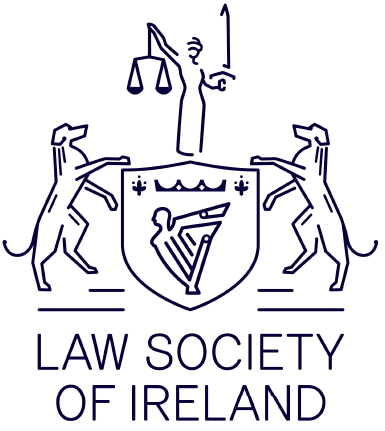A general tenet of Irish law is that we each owe a duty of care to those around us and that if we harm others, either by our acts or omissions, we can be liable under negligence. Doctors and medical professionals are no exception to this rule and are just as accountable for their mistakes as anybody else. When healthcare professionals fail in their duty of care, it’s called medical negligence (also known as clinical negligence or medical malpractice).
Medical practitioners that have been attributed to medical negligence claims in the past include:
WHAT IS MEDICAL NEGLIGENCE?
Medical negligence is extremely complex – in part because medicine itself is complex but also because of the legal standard required to prove that medical negligence has occurred. Irish law requires a claimant to demonstrate that another medical practitioner, at the same time and in the same circumstances, would have chosen a different course of action which would have prevented the injury from occurring in the first place.
This means that if someone has suffered an injury at the hands of a medical practitioner, due to their action (or inaction), but that which was done is considered to have been acceptable practice in the circumstances, it would not meet the standard required to prove medical negligence.
Medical Negligence cases arise in a number of ways. Some of the most common medical negligence claims are:
HOW DO I START A MEDICAL NEGLIGENCE COMPLAINT?
Claiming medical negligence can vary according to the nature of the injuries. Due to their complexity, they are primarily dealt with by way of legal action in the courts – in fact, the Personal Injuries Assessment Board (PIAB) will decline any application for assessment of medical negligence compensation because of their complexity.
However, before court proceedings can be initiated, there are certain steps which should be taken:
1. Seek legal advice
The first step in any medical negligence claim should always be to seek legal advice. Although it is often promulgated that the first step should be to write an official complaint to the medical facility or practitioner responsible for the injury, it is this author’s opinion that this should only ever be done after legal advice has been sought.
2. Accessing medical records and obtaining expert reports
Once legal advice has been sought and a solicitor instructed, they will begin by compiling the claimant’s medical records, the purpose of which will be to have them reviewed by independent experts in the relevant medical field. It will be for these experts to advise whether the standard of care received fell below the accepted standard. This is what forms the foundation of the legal case.
3. Assessing the claim
Medical negligence, in particular, can have serious and often life-changing consequences – leading to permanent physical injury, psychological trauma, or even death. Compensation is often necessary to help with these changes – from the provision of specialist care to the adaptation of homes and cars. As a result, these cases can result in huge claims. We often hear of the of the settlements and judgments that run into the hundreds of thousands and millions of euro. Many may gawk at these large sums without ever realising that each euro has been accounted for in some form or another.
Calculating the costs incurred and, perhaps more importantly, the future costs that may arise is a vitally important step in any medical negligence case. A solicitor will usually engage the help of experts, such as an occupational therapist, to provide reports that provide a basis for assessing the value an overall the claim.
4. Issuing court proceedings
Once a stateable case has been established, the solicitor, along with the advice of a barrister(s), will prepare and file the relevant court papers, setting out details of the claim. Court proceedings can often be lengthy – years rather than months – but it is open to the defendant medical facility or practitioner responsible for the injury to make an offer of settlement at any time.
It is important to remember that claims should be initiated as soon as possible. Generally speaking, a claim must be made within two years from the date that the claimant became aware of their injury – whether that’s the day they received the negligent treatment or many years later.
RECENT DEVELOPMENTS OF MEDICAL NEGLIGENCE IN IRELAND
It will come as no surprise to readers that the most recent developments in medical negligence law in Ireland centres very much around the CervicalCheck scandal. As the story unfolded, it became a particular concern to most that there was no provision in Irish law for mandatory disclosure – the process of disclosing to a patient that certain adverse events took place that may have caused them harm. As a result, women the length and breadth of this country suffered immeasurably from a culture of secrecy and protectionism.
Thankfully, new legislation has now been drafted to correct this. The Patient Safety Bill 2018, expected to be enacted later this year, contains provisions which will make it mandatory for healthcare professionals to openly disclose to their patient any serious patient-safety incident that has occurred and will impose sanctions on them for any failure to comply.
One big criticism this author has in relation to the new Bill is the protection it affords medical practitioners from litigation. The Bill places a restriction on patients who have adversely suffered as a result of medical error from using the information they have received by way of mandatory disclosure in any subsequent legal proceedings. Although the rationale behind this provision is aimed at encouraging a culture of open disclosure, it is this author’s view that such a provision is not a fair balance and adversely infringes on the administration of justice and a patient’s right of access to justice.
ARE YOU A VICTIM OF MEDICAL NEGLIGENCE? GET IN TOUCH!
If you are a victim of medical negligence, obtaining the advice of a professional and experienced solicitor is in your best interests. At O’Brien & Company Solicitors, we recognise that a medical negligence can have significant emotional and financial consequences for you and your family. That’s why we will do everything we can to make the process run as smoothly as possible for you. We will work long and hard to make sure that you obtain the compensation that you deserve.
For a free, no obligation consultation, call O’Brien & Company Solicitors on (01) 874 6959.








